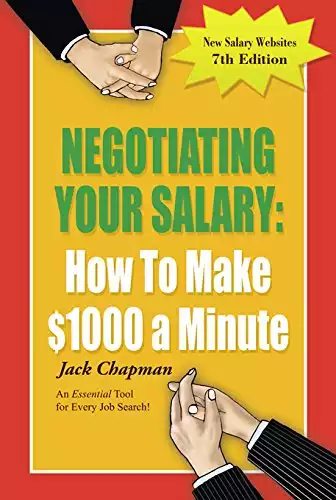We may receive compensation when you click on links to products from our partners. For more information, please see our disclosure policy.
Most people don’t enjoy putting together a resume. Writing about yourself is rarely easy, and it can be even harder when you have to “sell yourself” by highlighting your accomplishments.
As a result, people often either toss a resume together quickly without much thought or obsess over every little detail. Either approach can lead to including information that no employer really wants to read.
How bad is it? Resumes are often riddled with errors, so much so that CareerBuilder holds an annual survey of the Most Outrageous Resume Mistakes Employers Have Found. Most mistakes in the application process occur on resumes. The worst part about including unnecessary information or errors is that your resume might be the only thing a potential employer sees. Why? Because no one wants to interview someone who can’t even get their resume right. Here are some of the most common mistakes to avoid.
TopResume analyzes more resumes and LinkedIn profiles than any other service in the world. Let our experts provide you with objective feedback and personalized recommendations to improve your resume and land the right job sooner. Get started with a free, confidential review!
Including your interests and hobbies:
A resume is meant to showcase your work experience and education, not your weekend hobbies. However, people often include information about their interests, like basket weaving, swimming, or going to the movies. The common justification is that it shows they are a well-rounded person. In reality, you should only include hobbies or interests if they are professionally relevant. For example, mentioning your interest in swimming is appropriate if you are applying for a job as a physical trainer.
Listing all of your primary education schools:
If you’re a high school student and you’re applying for a job at a local retail chain, include your high school under education. You can even note any amazing accomplishments you’ve had there if you want, but you don’t need to. There’s no reason to ever list your middle and grade school information. If you’re a
Writing an objective:
Objectives on resumes were once prevalent (and somewhat expected). Whether or not to include an objective is a bit of a bone of contention, but the general consensus is to leave this out. Having one is an old idea and just adds clutter to
Having salary expectations:
Most experts will tell you to avoid discussing salary requirements during an interview until the last interview round. It does not make any sense to include this information on
Dating things besides your work history and education:
It’s recommended to include dates for your education and work experience on your resume. Extracurricular activities in
Do you need career support solely focused on you and your goals? Explore Career.io, the only Al and human-powered platform where you can find everything you need. For any step of your job search or career growth. All in one place.
Leaving gaps:
Gaps in
Saying “References are available upon request”:
People think they are covering their bases by adding this, but it’s just more unnecessary clutter. You don’t need to tell a prospective employer that you will allow them to see your references if they ask – that’s an expectation! This isn’t quite as bad as actually listing your references on
Remember, your resume is the first thing a prospective employer will see and in order to sell yourself, it should be presented in as concise a manner as possible. This means sticking to a single page in most situations (unless you have more than ten years of experience) and not wasting their time with information they won’t care about. Spend your time tailoring
Final Words
Avoiding common resume mistakes can significantly enhance your chances of landing an interview. By focusing on clarity, relevance, and professionalism, you can create a resume that effectively highlights your qualifications and makes a strong impression on potential employers. Remember,
Improve your chances in job interviews by optimizing your resume. Our partners specialize in resume writing, reviewing, and tailoring to specific job requirements, ensuring job seekers stand out to potential employers.
Additional Resources
-
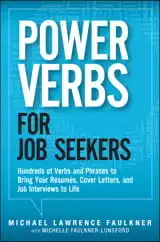
$22.99$21.31Get Your Power verbsHundreds of Verbs and Phrases to Bring Your Resumes, Cover Letters, and Job Interviews to Life. Use "power verbs" to make your resumes, cover letters, interview conversations, and personal pitches more memorable
We earn a commission if you click this link and make a purchase at no additional cost to you.
07/26/2024 01:31 pm GMT -
 Design winning resumes
Design winning resumesLearn to write a killer resume with our top picks of 5 must-read books on resume writing. Land your dream job today, get a book that best fits your needs.
We earn a commission if you click this link and make a purchase at no additional cost to you.
-
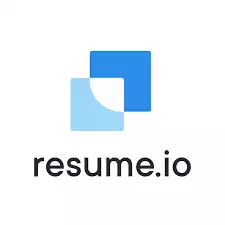 Create my Resume
Create my ResumeGive yourself a real advantage in your job search with Resume.io — the best online resume maker: created by experts, improved by data, and trusted by millions of professionals. Easy to use and complete within minutes. Try it now for free!
Resume.io is our trusted partner. If you subscribe to the product, we may earn a commission (at no additional cost to you).
-
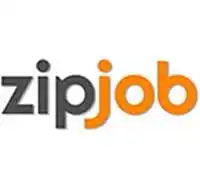 Explore Our Packages
Explore Our PackagesDid you know a professionally written resume makes clients appear 7% more valuable to recruiters than those with self-written resumes with the same experience? What salary did your last resume earn you? Achieve more in your next role with a ZipJob resume that displays your strengths, works with recruiting software, and earns you interviews!
ZipJob is our trusted partner. If you make a purchase, we may earn a commission (at no additional cost to you).
-
 Create Your Killer Resume
Create Your Killer ResumeImprove your chances in job interviews by optimizing your resume. Our partners specialize in resume writing, reviewing, and tailoring to specific job requirements, ensuring job seekers stand out to potential employers.
We earn a commission if you click this link and make a purchase at no additional cost to you.
-
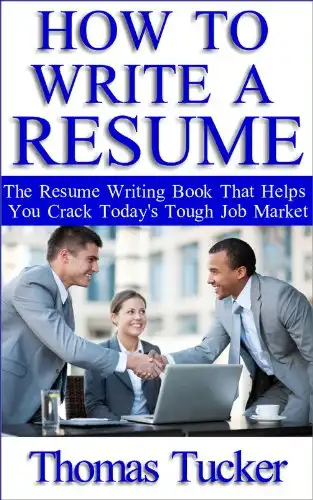 $2.99Buy on Amazon
$2.99Buy on AmazonThe Resume Writing Guide is a workbook that leads you through the actual process of creating a resume - one step at a time.
We earn a commission if you click this link and make a purchase at no additional cost to you.
07/26/2024 01:02 pm GMT


